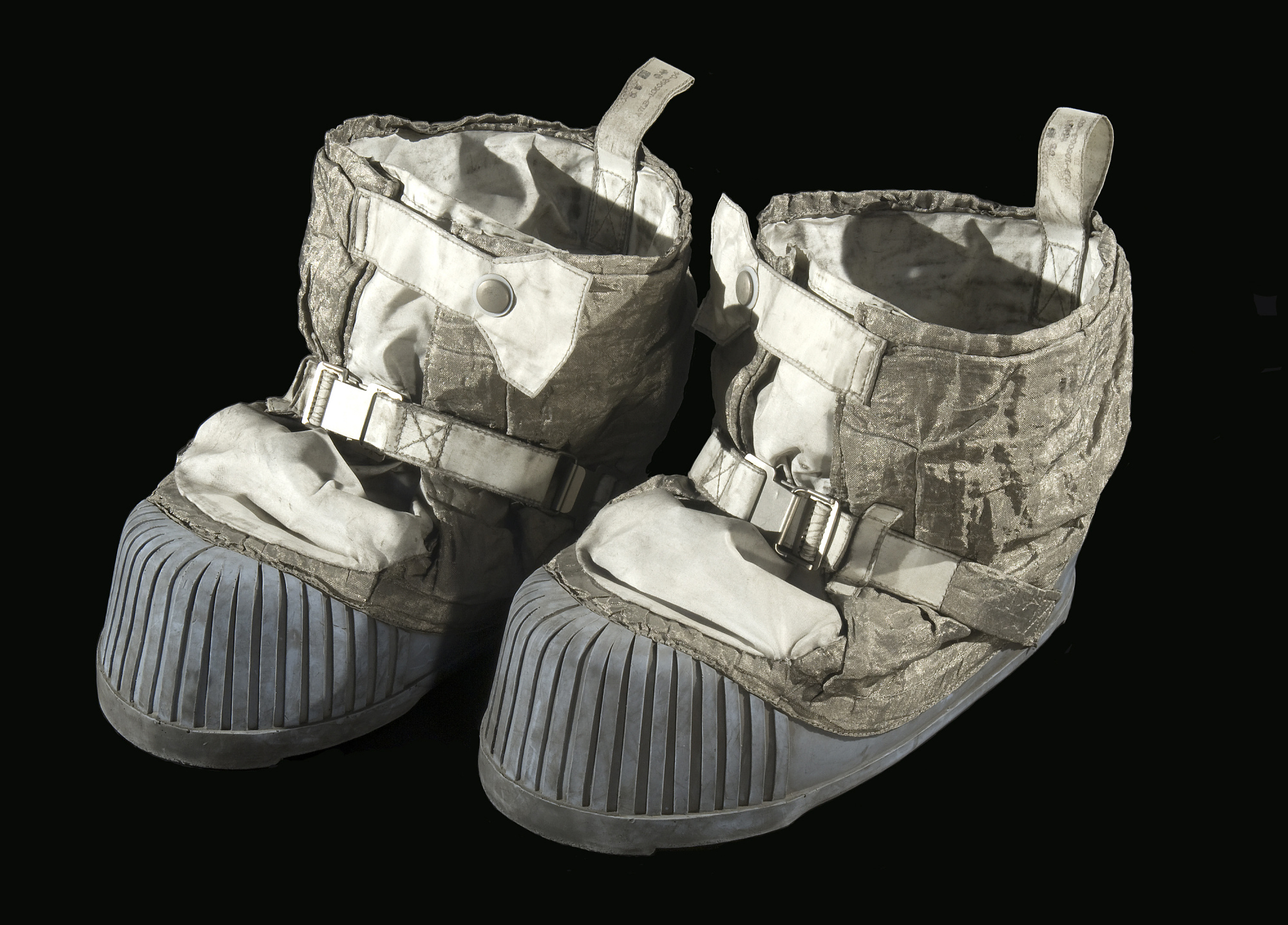“While a pen always falls when you drop it on Earth, it would just float away if you let go of it on the Moon”
This is allegedly what a University of Wisconsin Philosophy TA told a group of students. His reasoning? The moon is too far away to feel the Earth’s gravity. When asked about why the Apollo astronauts didn’t fly off the moon the answer was simply said: Heavy Boots. Ah yes! Heavy boots, these bad boys:

Most of us would recognize this as illogical and that the moon does in fact have gravity, but would any of us question the authority of a TA? (Yes, because we “Think and Do”). The student continues by mentioning that no one else in the class questioned it outwardly and speculating that perhaps no one thinks too intensely about things outside of “their world”, in this case, their majors.
To get a better perspective, the writer conducted a couple of polls. For example, the following questions appeared in the Physics 111 test after their elementary physics and gravity unit.
13. If you are standing on the Moon, and holding a rock, and you let it go, it will:
(a) float away
(b) float where it is
(c) move sideways
(d) fall to the ground (57% correct)
(e) none of the above
25. When the Apollo astronauts were on the Moon, they did not fall off because:
(a) the Earth’s gravity extends to the Moon
(b) the Moon has gravity (73% correct)
(c) they wore heavy boots
(d) they had safety ropes
(e) they had spiked shoes
More people got 25 correct than 13. Some, including myself (who has fallen victim to memorization), argue that this is because many people can memorize and recall the laws of Newtonian mechanics and forces, but perhaps have more trouble applying them. Some also speculate that society believes the knowledge they receive from authority figures and entertainment. Yes, it’s a fundamental physics concept, but it’s not fundamental to survival, so maybe people never learned it. Finally, many believe the story to be truly fictional because they’re unsure any of these explanations account for the lack of reasoning.
Those who got it correct were more likely to do well on the test, likely because the application of concepts is more valuable than the memorization of them. The author concludes with perhaps something the Franklin Scholars could relate to:
“A telling comment on the issue of fairness in teaching elementary physics: Two students asked if I was going to continue asking them about things they had never studied in the class”
The Story: http://www.phys.ufl.edu/~det/phy2060/heavyboots.html
